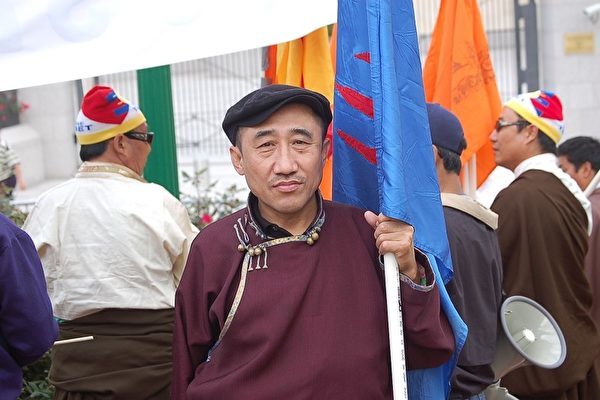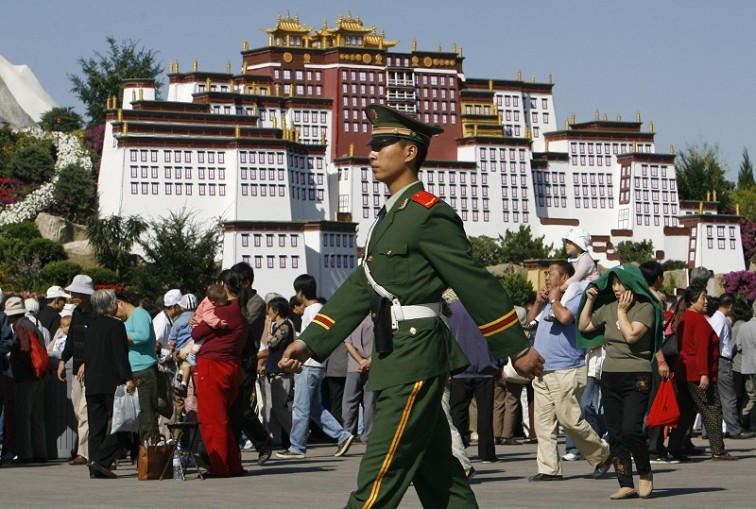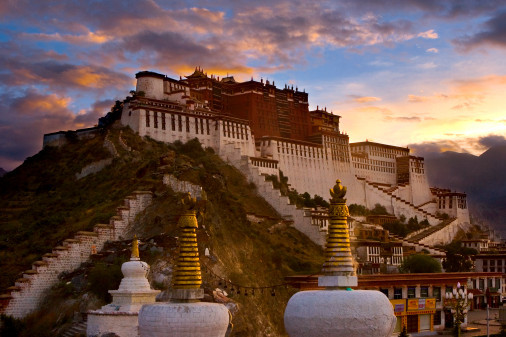Xi Jinping (Ken Ishii-Pool/Getty Images)
[People News] During Xi Jinping’s recent visit to Tibet, the biggest concern among observers was his health. According to insiders, after arriving at Lhasa Gonggar Airport, Xi Jinping remained standing in place for about twenty minutes before proceeding forward with slow, careful steps to help his body adapt to the high-altitude environment and reduce the risk of acute mountain sickness.
Xi arrived in Tibet on the afternoon of August 20 to attend the celebration of the 60th anniversary of the founding of the Tibet Autonomous Region. He left for Beijing the following afternoon, spending only about 24 hours in Tibet.
When Xi’s plane landed at Gonggar Airport, state broadcaster CCTV noticeably avoided showing footage of him walking down the airstairs. Instead, they only aired a close-up of Xi waving from the aircraft door before zooming out and cutting to a shot of him already on the ground. In contrast, clear footage was shown of Cai Qi, Wang Huning, He Lifeng, and others walking down the stairs with ease.
An insider told Dajiyuan that Xi looked visibly fatigued during the trip. After landing, he stood still for a while before walking forward in small, slow steps to adjust to the low-oxygen environment and prevent altitude sickness.
Overseas sources said this arrangement was made on the advice of his medical team: “It’s unclear whether it happened inside the cabin or after disembarking, but it was definitely meant to help him gradually adapt to the plateau environment and reduce health risks.”
CCTV footage showed Xi with a sickly appearance: his face appeared swollen, his eyelids so puffy that he could barely open his eyes. While walking the red carpet, his gait was unsteady, his limp pronounced, and his head occasionally swayed involuntarily.
According to insiders, Xi’s walking in Lhasa was less stable than during his last visit, with greater swaying: “His weight shifted more toward his left leg, while his right leg dragged slightly. His steps were shorter, and at times he looked wobbly, which has drawn speculation about his health.”
Four years earlier, from July 21 to 23, 2021, Xi visited Nyingchi to inspect wetland conservation, toured the Nyingchi City Planning Museum, visited Gala Village (a model village in Tibet), and interacted with residents at Barkhor Street in Lhasa. By contrast, this time he only attended the anniversary ceremony, without close contact with local residents.
An insider recalled that decades earlier, when Hu Jintao served as Party Secretary of the Tibet Autonomous Region, he often stayed in Chengdu for health reasons and remotely managed Tibetan affairs. During his tenure, two of his secretaries died due to hypoxia from frequent travel between Tibet and Chengdu.
Cao Qiang (alias), now living overseas and once responsible for internal document delivery during Hu’s tenure, recalled:
“From December 1988 to October 1990, before the 14th Party Congress, Hu Jintao largely worked out of Chengdu due to health concerns, essentially moving the Party Secretary’s office there. Two of his Han Chinese secretaries—one, I think, surnamed Li—died within four years from long-term hypoxia and exhaustion caused by frequent travel.”
Cao added that Hu himself seldom stayed in Tibet because the plateau environment severely affected his health:
“Hu’s body was not suited for living in Tibet. Although the oxygen percentage is the same as at sea level, lower air pressure significantly reduces oxygen partial pressure, meaning fewer effective oxygen molecules enter the body. Long exposure in such conditions can cause severe altitude sickness and even be life-threatening in weaker individuals. With approval from the central government, Hu worked out of Chengdu until after the 14th Party Congress, when he entered the Politburo Standing Committee.”
As for whether Xi’s health during this visit signals deeper problems, interpretations vary.
A Beijing scholar, Ma Sankui (alias), told reporters:
“I noticed Xi’s gait on the red carpet after disembarking—he seemed to be deliberately concealing mobility issues. Although CCTV broadcast multiple full-body shots, his movements still didn’t look natural. Similar signs have been seen during his overseas visits.” He added that the trip also carried a political message: “It demonstrates Beijing’s firm stance and determination regarding stability in Xinjiang and Tibet.”
A high-altitude medicine doctor explained:
“At Lhasa’s 3,650-meter altitude, ordinary people’s blood oxygen saturation often falls below 90%, leading to dizziness, fatigue, and even arrhythmia. Pausing briefly after arrival or walking slowly is indeed a common practice for elderly individuals and those with chronic illnesses.”











News magazine bootstrap themes!
I like this themes, fast loading and look profesional
Thank you Carlos!
You're welcome!
Please support me with give positive rating!
Yes Sure!